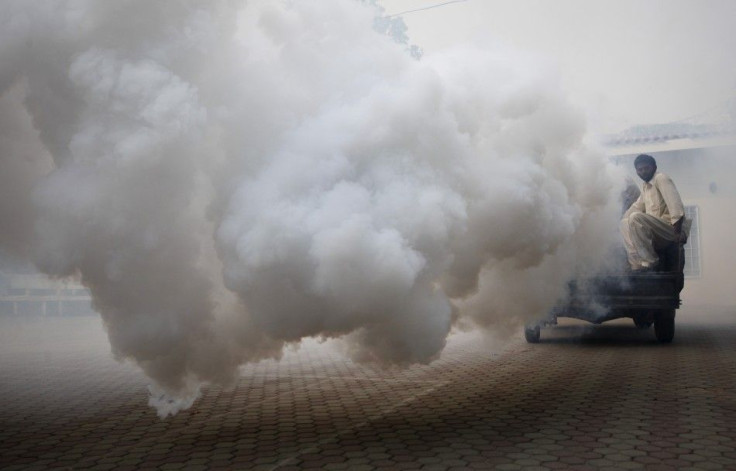Deaths From Malaria Fall, But Funding Woes Loom

LONDON (Reuters) - Malaria deaths have fallen dramatically in the past decade thanks to increased aid allowing more people access to nets and medicines, but the economic slowdown threatens to curb future progress, the World Health Organisation said on Tuesday.
In its annual global report on the mosquito-borne parasitic disease, the WHO said international funding for the fight against malaria rose to about $1.7 billion in 2010 and $2 billion in 2011, the highest annual amounts ever reached.
But this is still far short of the estimated $5 billion to $6 billion needed each year to achieve the WHO's target to reach zero deaths from malaria by 2015.
The increased funding has resulted in tremendous progress, the United Nations' health agency said.
The estimated number of deaths from malaria dropped to 655,000 in 2010, 36,000 lower than in 2009.
While this represents significant progress, the mortality figures are still disconcertingly high for a disease that is entirely preventable and treatable, the report said.
Malaria is endemic in more than 100 countries worldwide but can be prevented by the use of bednets and indoor spraying to keep the mosquitoes that carry the disease at bay.
Effective malaria drugs known as artemisinin-based combination therapies, or ACTs, can cure the infection but access to these medicines is often hampered in poor countries where funding is limited and health services are patchy.
Total eradication of the parasitic disease, which is spread through the bites of infected mosquitoes and threatens about half the world's population, is still a long way off. Some think it could take another 40 to 50 years.
The WHO's report said a huge scale-up in malaria control programs between 2008 and 2010 had meant that enough insecticide-treated mosquito nets were distributed to be able to protect more than 578 million people at risk of the disease in the worst-hit region, sub-Saharan Africa.
A total of 11 countries in Africa saw a more than 50 percent reduction in either confirmed malaria cases or malaria hospital admissions and deaths in the past decade, and a drop of more than 50 percent in malaria cases was also found in 32 of the 56 malaria-endemic countries outside Africa during the same period.
Morocco and Turkmenistan were certified by the WHO in 2009 as having eliminated the disease.
The results set out in this report are the best seen in decades, WHO's director general Margaret Chan said in a statement with the report. After so many years of deterioration and stagnation in the malaria situation, countries and their development partners are now on the offensive.
But the report projected that with many international donors suffering recessions or very slow economic growth, funds to fight malaria may fall in 2012 and 2013 and could drop to an annual $1.5 billion by 2015.
Even this forecast was an optimistic scenario it said, since many donors have not yet finalized what their future commitments are likely to be.
(Reporting by Kate Kelland; Editing by Matthew Jones)
© Copyright Thomson Reuters 2024. All rights reserved.






















